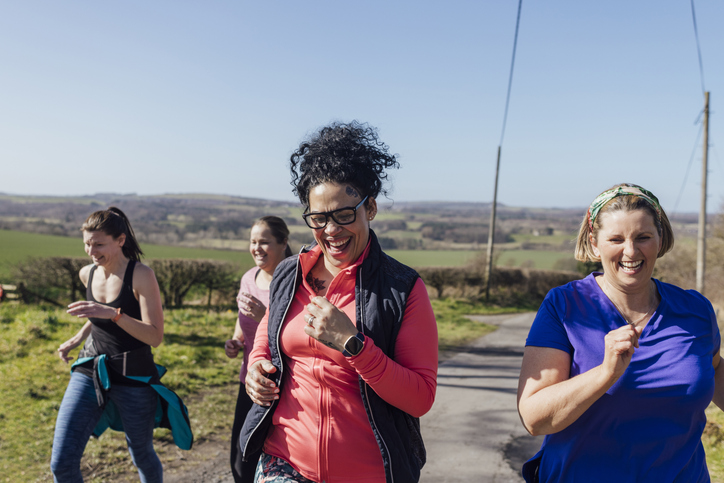There is an enormous amount of research on the mental health benefits of exercise for people of all ages. Research has shown that people who exercise regularly are happier in themselves, socialise more, are less anxious and stressed, and have a better body image. They also sleep and eat better. People who exercise feel that they’re looking after their bodies and tend to adopt other healthier habits too; they are less likely to smoke, they drink in moderation and generally eat in healthy ways.
Getting our heart rate up releases endorphins, which improves our mood. Adrenaline is also released when we exercise, which reduces our stress. Some people use exercise to think through problems and clear their head or use it as time out for themselves. Others love the social element of exercise and catching up with friends.
Those involved in team sports benefit from the social component and potentially some healthy competitiveness. Our brains also benefit from learning new skills. When our bodies and brains are active, they’re less likely to decline in function as we age. Exercise has even been shown to help prevent and treat dementia.
Other physical benefits include keeping our heart healthy, keeping our joints mobile, reducing pain and stiffness, and improving our cardiovascular and immune systems. Exercise helps with our weight and fat storage, keeping our muscle built and strengthening our bones, not to mention making us feel more comfortable in our own skin.
What do we mean by exercise?
Exercise doesn’t have to be slogging it out at the gym. A daily walk, doing some household chores, gardening, having a dance to music or walking to the shops can all get the heart rate up. Combining movement with sunshine, fresh air and socialising makes us feel better. Some like to pound the pavement and let out their stress through a run, others might do yoga or stretching.
How do I start if I’m not used to exercise?
It’s never too late to start moving the body – moving the body keeps it functioning at its best. For those who might have joint issues or are carrying a lot of weight, trying gentle exercise or water resistance training such as swimming can be a great way to begin. Start slowly and build your body up to longer periods.
When is exercise not so good?
Exercising when injured or over-exercising (doing too much) can be not so good for our bodies physically and mentally. Rest if you’re unwell and always check with your doctor about your body’s specific needs.
If you feel anxious when you don’t exercise or guilty because you’ve missed the gym, you might need to think about whether you’re using it in unhealthy ways.
Canberra Daily would love to hear from you about a story idea in the Canberra and surrounding region. Click here to submit a news tip.



